Work and life in Bulgaria - 3. Interviews, visa, working moments
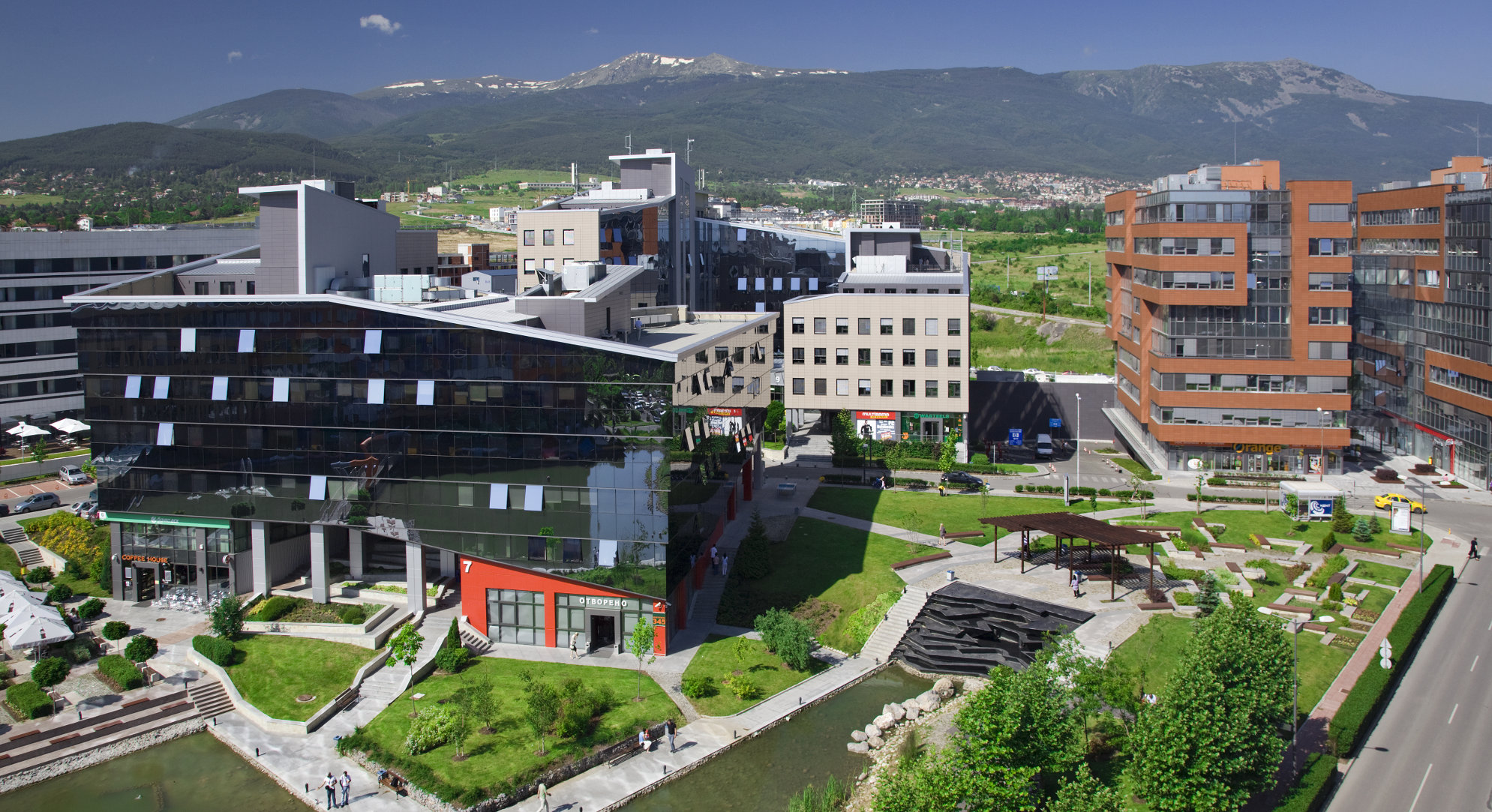
Hello! Slightly delayed the writing of the third part (almost half a year has already passed), but there were good reasons. And today the time has come to complete my review about life and work in Bulgaria, highlighting the most up-to-date data on the IT market, registration of a work visa, interviews and much more.
In fact, when writing the first two parts ( here and here ), I no longer lived in Bulgaria, and perhaps some of the readers were able to notice it. At the end of 2015, I returned with my family for a variety of reasons to Moscow, where I lived for two long years. And only in December 2017, on the very eve of Christmas, we returned again to Sofia to live and work here.
It would seem: only two years, but they seemed to us in Moscow really long and painful. I have already forgotten how uncomfortable (for me) the weather can be in this metropolis; I forgot how it is to live without the sun for several months in the midst of “fifty shades of gray”, to be blown by the dank wind and burn shoes with street reagents in the middle of gray winter (?) slush.
')
Immediately make a reservation that I do not pretend to be an expert on the “best climate” for life, each person has his own criteria for comfortable weather: someone likes a cool breeze, someone drags from the rains, someone necessarily needs meter drifts in the winter for complete happiness, and someone comfortable among year-round heat. In this regard, everyone’s preferences are different, but for me personally, the weather conditions offered by Moscow are not at all satisfactory. Like me, when in February outside the window is +14, it is dry and comfortable (for some reason after this phrase I remembered the diaper advertisement, heh).
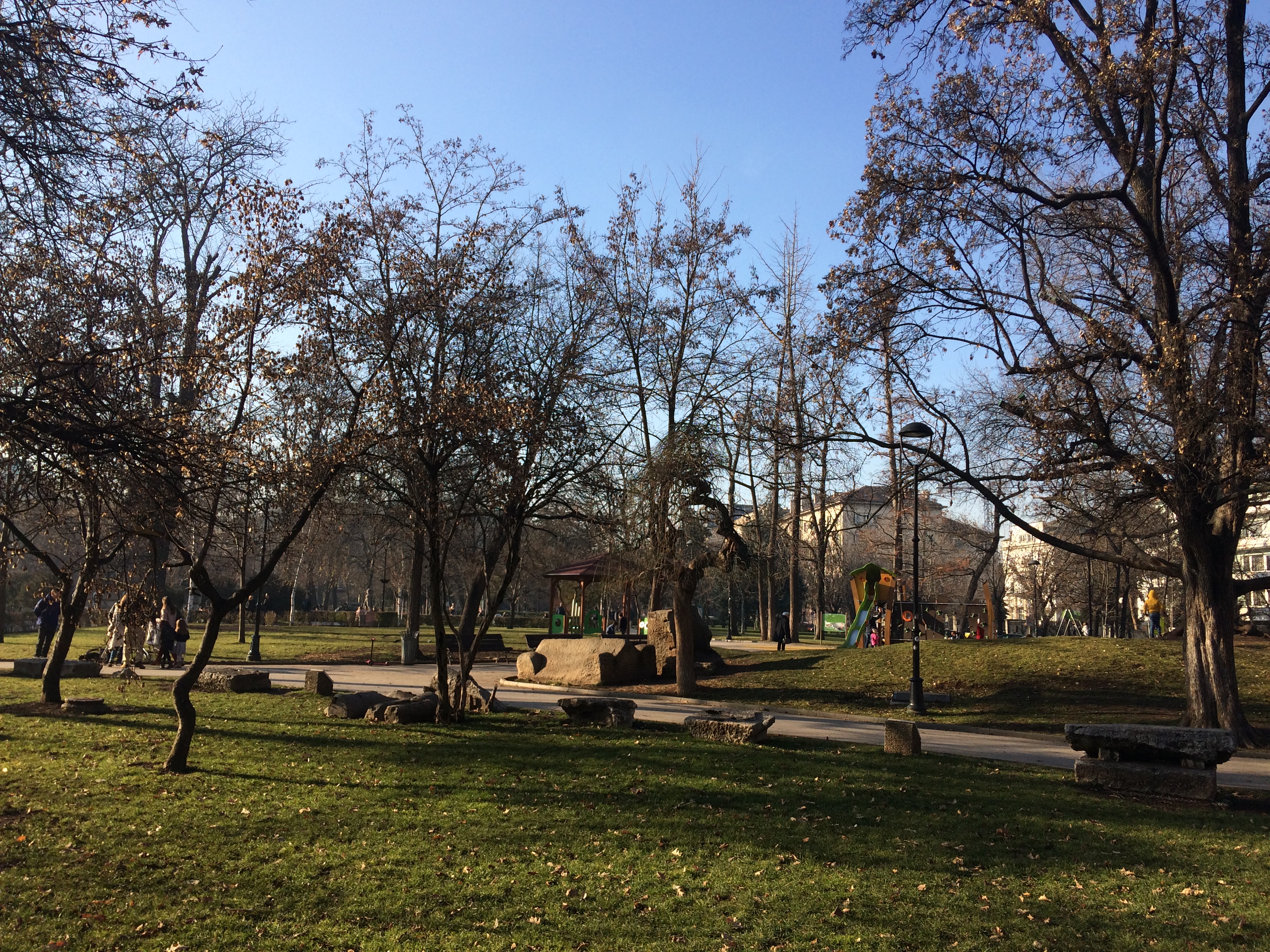
And for lovers of snow an hour from Sofia there is Borovets, Bansko and other resorts.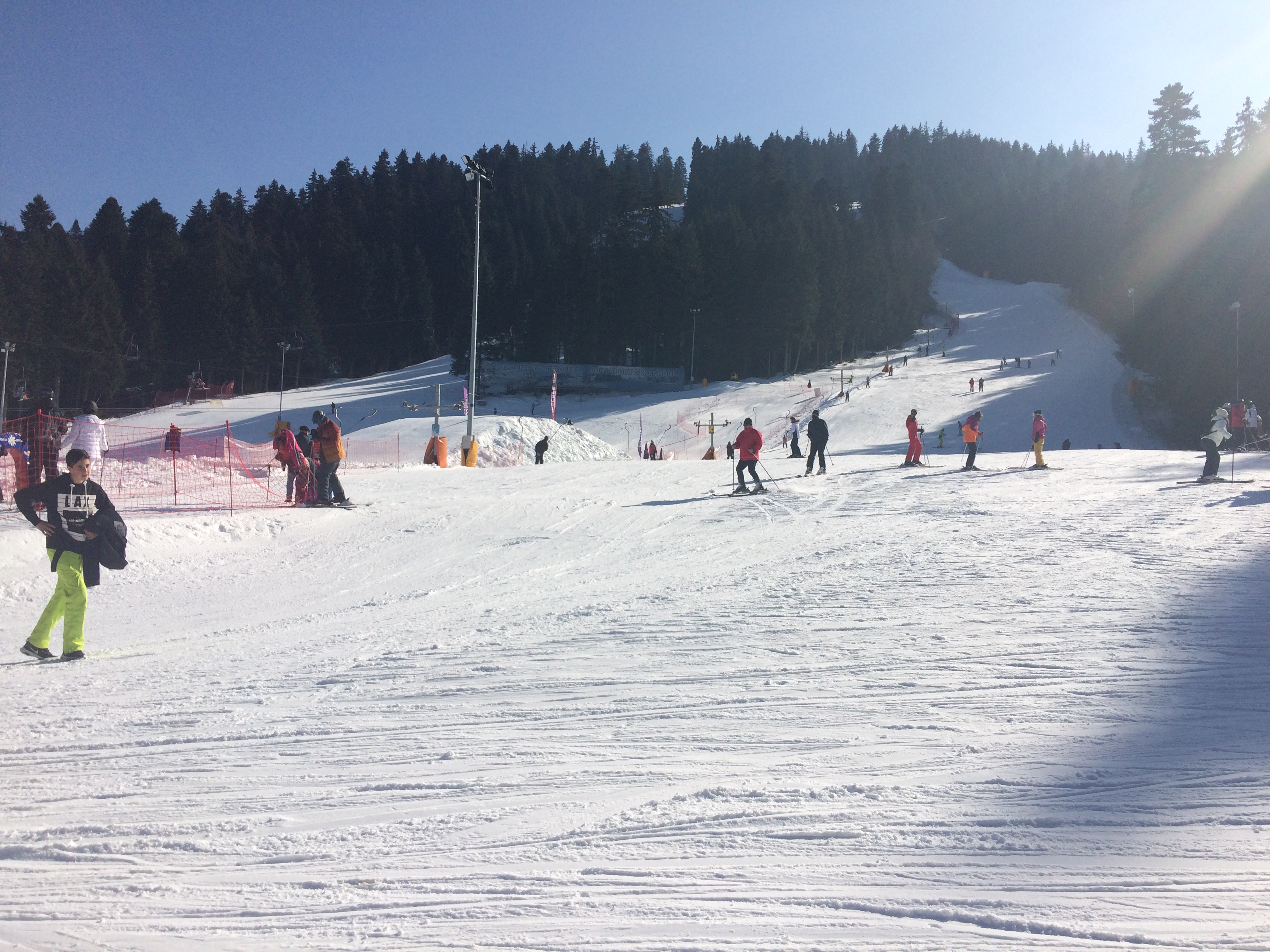
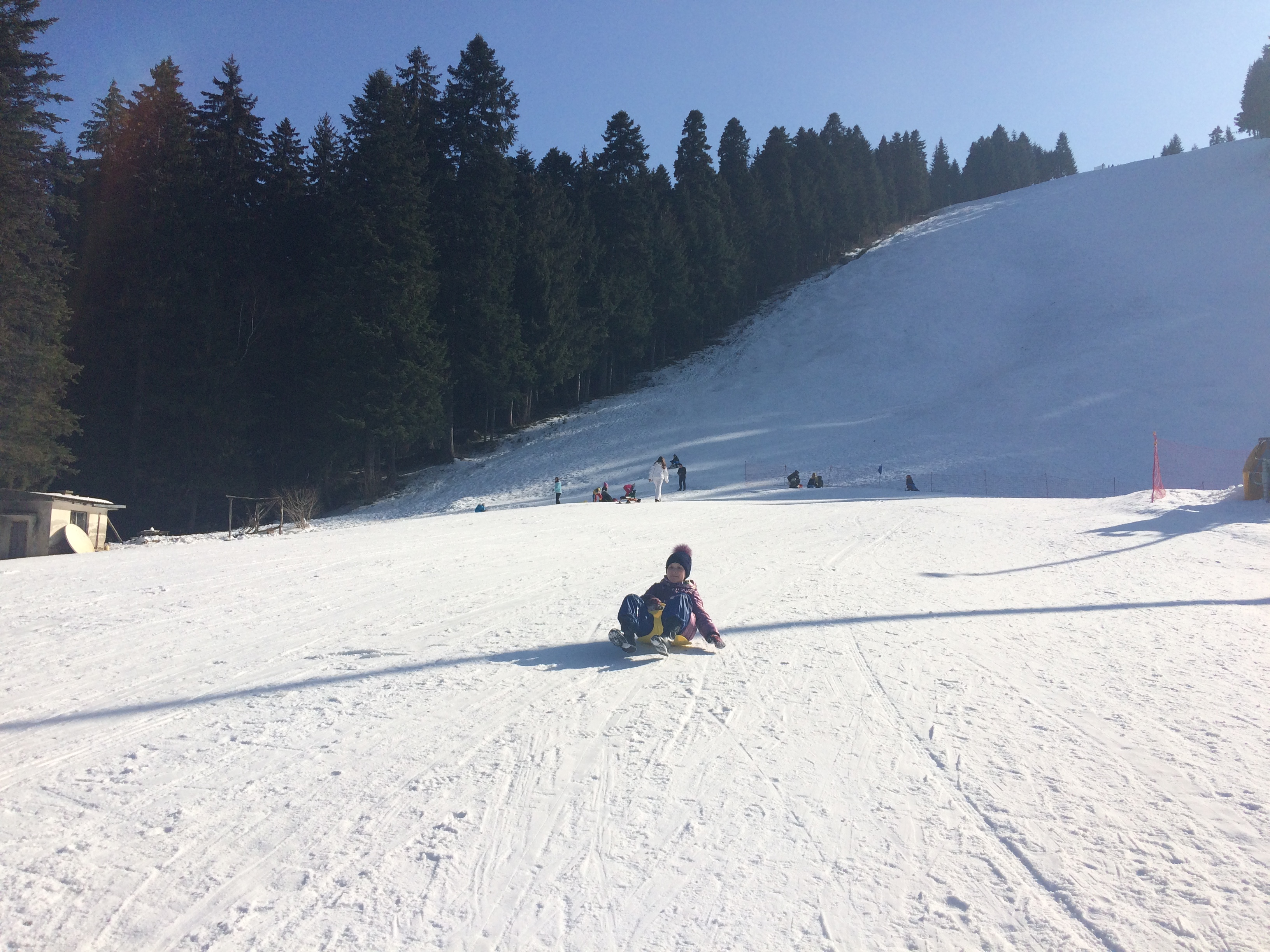


Of course, the desire to live again in a warmer climate was not the only reason why my family and I wanted to return to Bulgaria. Nevertheless, I will not focus on this now, but rather tell you in detail exactly how the whole process went.
In August of last year, the desire to return to Sofia was already fully formed, and I began to consider possible options for moving. Last time I made out a visa through a trade mission, but this option did not suit me today. The Bulgarian government has introduced new rules on this topic, complicating the procedure for obtaining an immigration visa "D". Today it is necessary to prove that your "parent" company is really actively working, and that you plan to open a representative office in Bulgaria not just for show. This can be proved through bank statements from the current account, tax returns, etc. In other words, today it is not enough to have a “zero” company to launch the process of obtaining a visa. The logic of innovation is actually on the surface: too many interested people from Syria and other countries storming today began to issue visas through fake offices, and the Bulgarian government didn’t like this fact (and which country would like that?). In general, I dismissed this option for myself.
For some reason, I did not immediately think about obtaining a work visa until I wrote in a personal note to the person who read my first article about Bulgaria (habraeffect, he himself, yeah). He told me that today for IT specialties obtaining a work permit has been incredibly simplified. This is due to the introduction in Europe of the so-called Blue Card .
In general, this BlueCard is a bit strange. The general meaning of this card is quite clear: the opportunity to work for highly qualified specialists in a particular EU country. Another thing is that the criteria for this very “high qualification” each EU country determines independently, like many other factors, in particular, the minimum salary that the employer will have to pay this employee, the validity period of this card, the required documents and so on. Compare conditions for obtaining BlueCard in a particular EU country here: https://www.apply.eu . An additional bonus of the “blue card” is the possibility after some time to work not only in the country where you issued the card, but also throughout the EU.
In fact, a work visa was issued in Bulgaria earlier, but it was such a hemorrhoid in the design that my acquaintances Bulgarian lawyers had previously tried not to undertake this business. There is nothing to say about employers. It was necessary to prove that you are
Finally, about a year ago, Bulgaria joined the BlueCard issue, leaving behind all the torments of labor emigration. The term for obtaining a work permit is 2 weeks, the minimum salary must be at least 9000 euros per year (complete nonsense for IT), the list of required documents is minimal. I will not list the list of specialties here now; I can only say that it applies to almost all IT specialties, from programmers to architects. Also, you should have a diploma of higher education (in our IT case - technical) and at least 3 years of work experience that can be proved. Well, of course, you also need an offer (employment contract) from a Bulgarian employer. In general, having gone through all this information, I decided to follow this path. Okay, starting with the most important thing: finding an employer :)
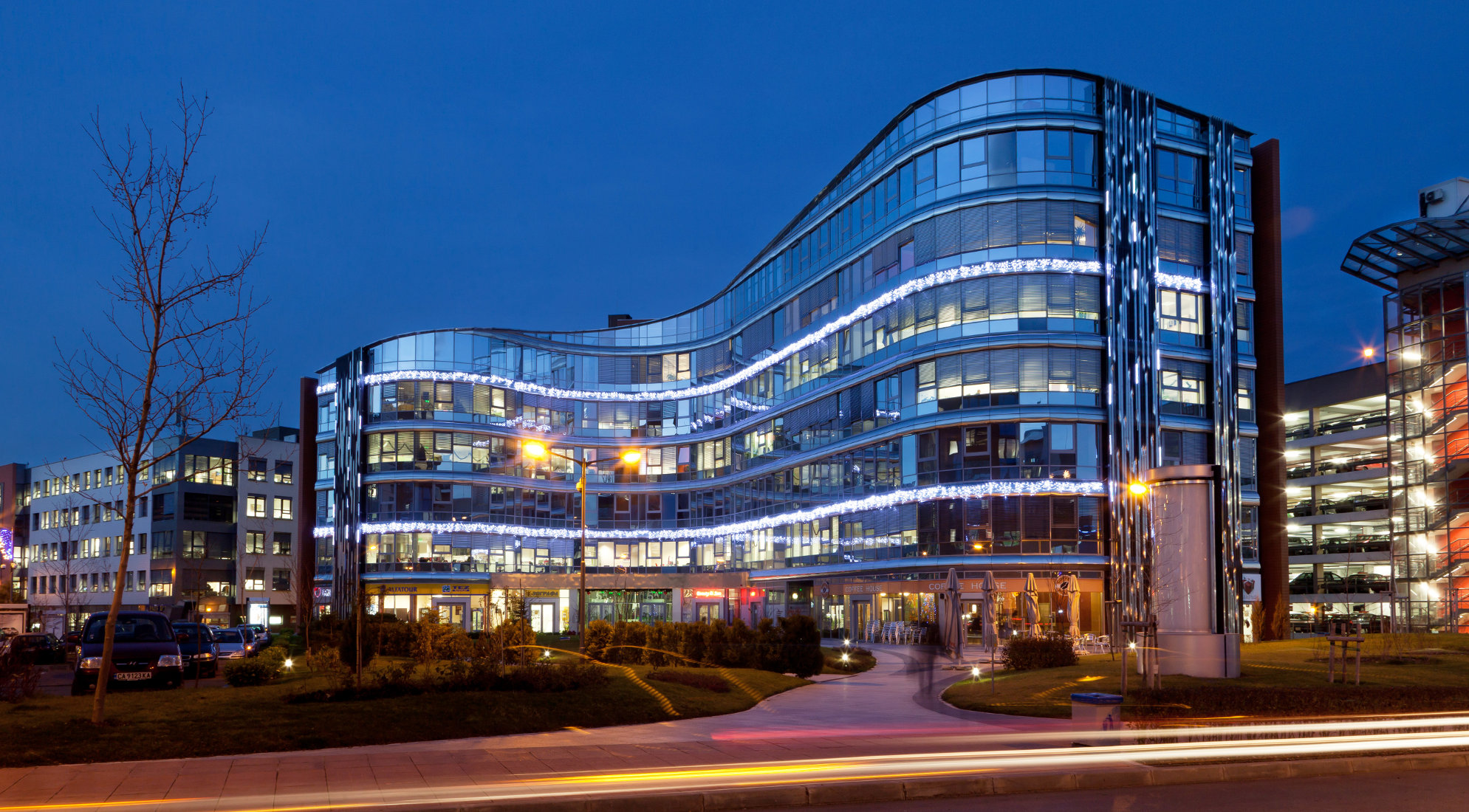
In the end, I'm not going to come to Bulgaria just so that later I don’t know what kind of profits to live here. Climate climate, geography, geography, and eat (and tasty) we all want in the first place. I interviewed my old Bulgarian acquaintances about the size of the RFP, and where in general today I am looking for work in Bulgaria. The answers surprised me a little.
First, IT wages have risen very, very well over the past two years. I personally remember how my Bulgarian colleagues with 2-3 years of experience previously received no more than 1,200 euros, the more experienced ones could count on a maximum of 2,000 euros. Today, a programmer with experience of several years, depending on the region and the company, earns in the range of 1500-3000 euros, and this is not the highest bar. Architects with good experience earn from 3,500 euros. Immediately make a reservation - this is the salary in the hands, after tax deductions.
“Wow!” I thought. What happened here in a couple of years? Everything is simple - the words “competition” and “deficit” are magic for programmers. In recent years, many IT specialists have left Bulgaria in search of better living conditions in Germany, England and other Western countries. Then, when companies from the USA, Germany and England began to come to Bulgaria, opening their branches, it was EXTREMELY found out that there are not so many intelligent programmers left here. And the IT market in Bulgaria today is a purely buyers market, i.e. workers.
OK, we know the level of wages, we go further. Where to find employers? The correct answer is LinkedIn. All normal personnel officers sit there, and if you have a competently compiled profile, then you can believe me - they will send you job offers literally every day. And at once a little trick that my Bulgarian friend suggested to me - change the place of residence in your profile to Bulgaria. Yes, this is a little dishonest, but it will be simply difficult for Bulgarian personnel officers to reach you if you are in your native places of residence from outside the EU.
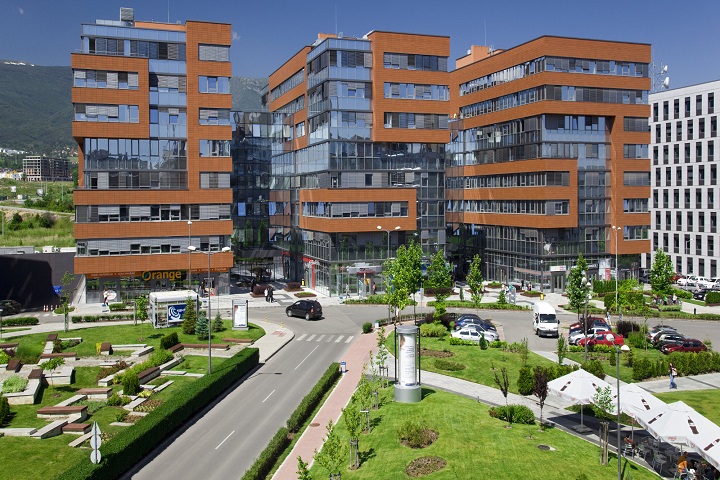
So, I put in order my LinkedIn profile, changed the “place of residence” to Sofia, and added to my connections some Bulgarian personnel officers. My native programming language is C ++, so the emphasis in describing work experience was done on it. Further, HR began to be added already, and - in a geometrical progression. After a couple of days I began to receive the first offers to see this or that vacancy. Immediately make a reservation that it does not matter whether you know the Bulgarian language or not. The universal language of communication is English. It is in this language that they will write or call you, and it is in English that you will be interviewed (interview). About a week later I already had a pool of scheduled interviews, some of which I decided to weed out myself. Firstly, some proposals regarding work in Singapore, where I did not plan to go at all :) Similarly, the Czech Republic and Poland were eliminated. In fact, I left 3 companies for myself to be interviewed via Skype.

All three companies were American (one company was purely from the USA, the other was also merged with the Bulgarian, the third one was Bulgarian, which was also bought by an American company six months ago). In general, in fact in Bulgarian IT today, where not to poke - companies will not Bulgarian, but American, English, German, Dutch. Two working days after the interview I received an offer from an American company for the amount that suits me, and the first item of the problem was solved.
I'll tell you briefly about the interview process. As I have already announced, they usually pass on Skype, no one will force you to fly to Sofia for this. The first conversation usually takes place with HR from the agency, where you simply communicate in a nice way, tell about yourself, about your projects. Here you will discuss the desired wages, working conditions. You will be told in detail about the company, its projects, tools and other nuances. Keep in mind that in the process of this conversation after the fact you and check the level of English. And if you can clearly communicate and understand - consider that you have already passed this exam.
Further (not necessarily on the same day) you will have a technical interview. I had three interviews, and all three were of different types. Somewhere there was a question-and-answer game in the style of “what is a purely virtual function?”, Somewhere I was asked to comment on the code, saying that this was not the case. And somewhere I was asked to write a combat code (in google docs, LOL), solving a specific task. For example, write a program that finds the intersection of the wires, and remove the short circuit between them with minimal damage to the rest of the wiring. The time allocated for the task was 40 minutes, and we waited for comments in the process of solving. Also, during the technical interview, you will again be asked to tell about yourself, about your education, about your most interesting project in your career.
Was there anything so special about these interviews that would make him so different from Russian interviews? No, I would not say so, everything is quite familiar (except for the fact that the language of the interview is English). The attitude during the interview was extremely polite and welcoming. Personally, I still have extremely positive impressions from all interviews completed. Yes, I was a little surprised that the interviewers were interested in my education with great curiosity, an American from San Diego was especially addicted to asking me about the courses at the university (up to graduation work), even though I finished it back in 2006.
Ok, the offer is received by email in the form of a beautiful piece of paper with a description of who I will work with, what exactly to do and how much money I will receive. We print the offer, put our signature, and send the scan back. The next day they also sent an employment contract by email, where they also need to sign and send back. Now it's time to start collecting documents.
For the recipe for the preparation of a successful work permit from the Bulgarian government, we will need: 1) a copy of the employment record; 2) a copy of the diploma of higher technical education; 3) a copy of the current job description from the last place of work. These documents need to be translated into Bulgarian and assured in the Bulgarian Embassy. We spice up these pieces of paper with a couple of photos like a passport - and send it by DHL to our personnel officers in Bulgaria. Further, they are already preparing all the necessary forms, paying the necessary duties and submitting documents to the Ministry of Labor. We are waiting for 2 weeks - and it is ready, permission is in our hands.
The next stage is the search for an apartment in Bulgaria, where you will live. Not a very pleasant stage, because you will have to pay rent for at least one month while you are waiting for a visa. But without this nowhere, the document on the provision of housing (a rental agreement or a document on own housing) appears in the list of required documents for filing for a visa "D". It is not necessary to go to Sofia, it is enough to simply issue a power of attorney for a local person, so that he will find you an apartment on your behalf and issue a lease agreement. In my case, this person was my personnel officer, who had been looking for a more or less suitable apartment for me and my family for two weeks.
Hood, housing found, a lease agreement signed, work permit received, all the original documents in our hands. Now we go to the Bulgarian embassy and serve the docks for the visa "D". We are waiting for a month and a half (as someone lucky), get a visa in the passport and buy a plane ticket. I will not describe about fees, etc. etc., everything was pretty standard: a maximum of things was sold, the rest was stuffed according to the “drawings” and brought with them. If to summarize the terms, then I got exactly three months from the moment of receiving the offer until the moment of arrival in Sofia.
Upon arrival in Sofia, you will need to go to the local FMS (Directorate of Migration) to apply for a residence permit (for one year with renewal) and the very “personal card”, which is blue-pink. A residence permit will be issued in a week or two (again, as lucky), and with this all the paperwork can be considered complete. It's time to go to work.
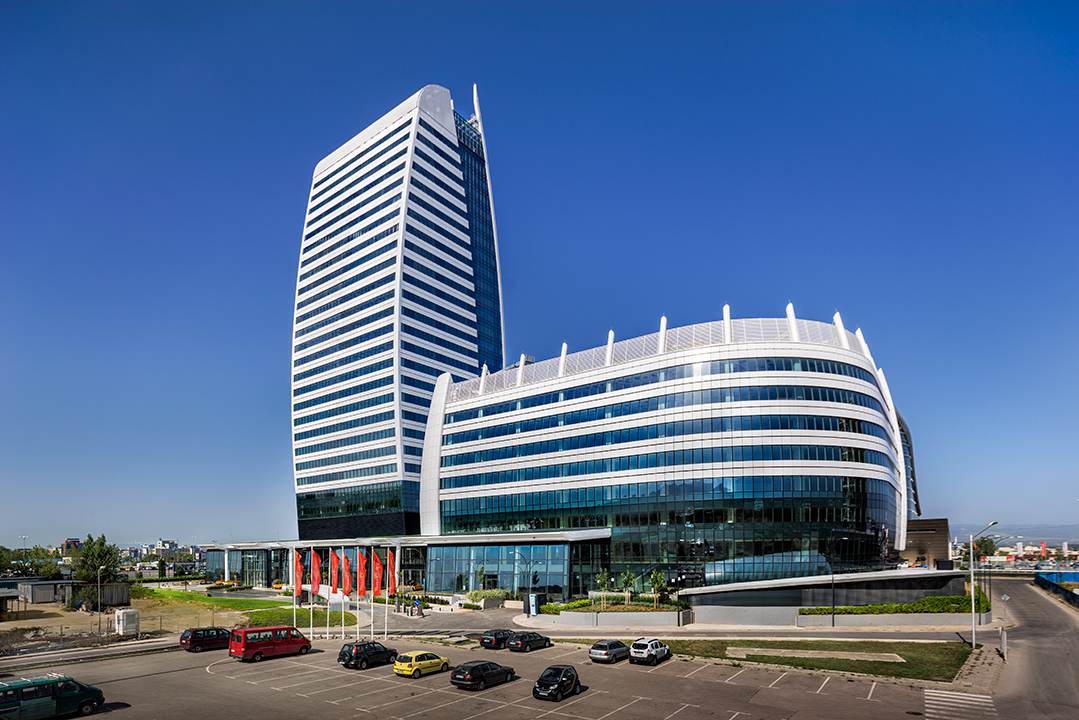
A Bulgarian, German, Russian, Ukrainian and Romanian once gathered around the table ... No, this is not the beginning of some funny joke, but quite an ordinary rally in the middle of a week in our company. At the same time, over a remote connection, colleagues from Poland or India can connect in the process of discussing work issues. Working in such an environment, quickly comes the understanding that English is not without reason that local employers necessarily require it. This is not a whim, not an English-speaking environment (as it would be, for example, in the USA), but simply the need to understand your colleagues from completely different countries, and to be able to convey your thoughts to them. This is the most common working tool, and nothing more.
Bulgaria itself is a rather small country, and companies (primarily IT, but not only) are initially oriented to work with other countries, otherwise the profit will be quite limited. And thanks to the lowest taxes in Europe, foreign companies, in turn, are stretching here, opening branches or buying out Bulgarian production entirely. Therefore (I repeat) English is not to know here - it is simply to close the door to most companies for yourself. In addition to English, German and French are also valued in the local labor market.

I already mentioned the conditions of work earlier in my articles. In short, everything is different, and the people will also be different in communication. Bulgarians themselves are very friendly and sociable people, personally I am very pleased to communicate with them. There is no problem to take time off on personal business somewhere, no one stands behind his back and does not report how much time you came and went. Officially, the working day lasts, as in Russia, 8 hours, an hour for lunch, but this time is not strictly fixed. Someone comes earlier, someone later. In fact, specifically in our company, you are only expected to perform their work of high quality within the designated time frame of the project. Well, do not be late for pre-arranged meetings, of course. The office has a kitchen with all personal belongings, including a free coffee machine and fruit. The office itself is located in the business center "A" class, no different from themselves like in any civilized city in the world.
Currently, I work a little less than a month in a new company, and I can definitely say - I like it :) This is a truly new stage in my career, which I haven’t had before. Yes, I previously worked in Sofia with Bulgarian colleagues, but I haven’t had such experience in a truly international company. And this is an amazing and pleasant feeling, when you can not just communicate and exchange technical experience with colleagues from many countries, but also notice how the processes in Western companies are different. This feeling, when you are not isolated in the framework of one country, but on the contrary, you are part of a large, interesting world.
And on this positive note, I, perhaps, will end my small cycle about life and work in Bulgaria. I hope that this information was useful to you, and if you have questions - please, in the comments, I will be glad to answer. And see you in sunny Bulgaria!
Source: https://habr.com/ru/post/348666/
All Articles